|
Click pictures for a larger version.
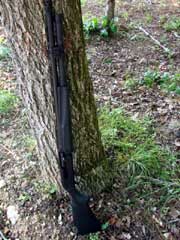
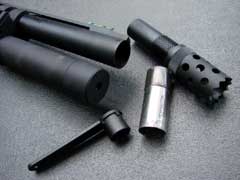
Versa Max Tactical comes with Improved Cylinder choke tube, choke tube
wrench, and extended tactical choke tube.
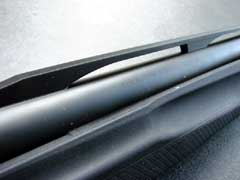
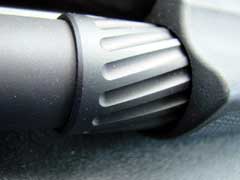
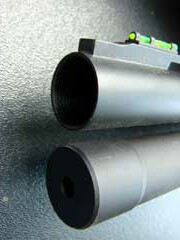
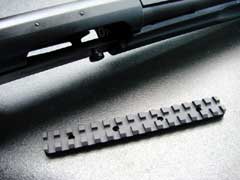
The Versa Max Tactical also comes with Picatinny rail to attach optics atop the receiver.
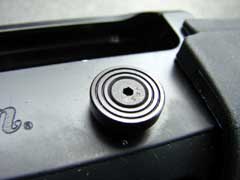
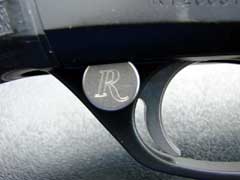
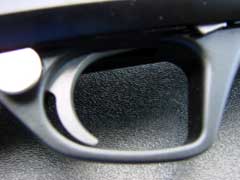
Oversized bolt release (top), oversized safety button
(middle), and oversized trigger guard (bottom).
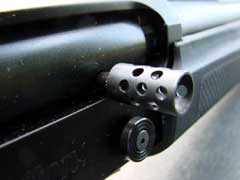
Large, easy-to-grasp bolt handle.
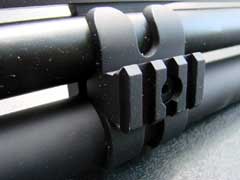
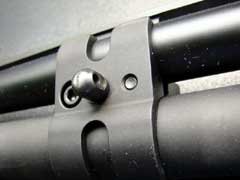
Magazine tube support has a sling stud and accessory rail.
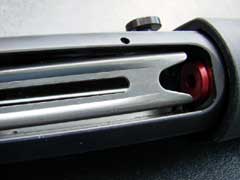
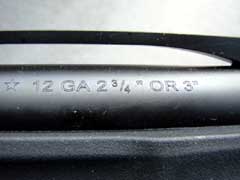
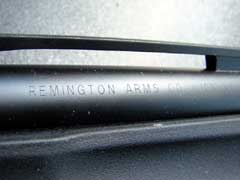
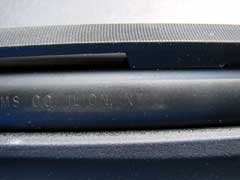
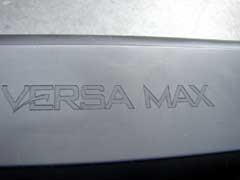
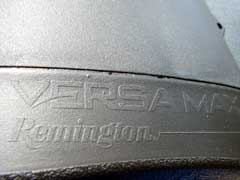
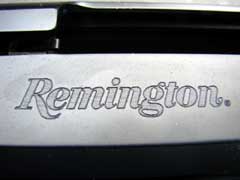
|
|
It has been almost nine months since I
reviewed the Remington Versa Max
shotgun. After shooting that shotgun, taking it apart,
studying the innards, putting it back together, and shooting it
a lot more, I was impressed. Very impressed would not be an
overstatement at all. The simplicity and ingenuity of the design
results in a very reliable shotgun that self-adjusts the gas
system to shoot any 2 ¾, 3, or 3 ½ inch twelve gauge
shotshell, from light target loads through the big 3 ½ inch
magnum goose and turkey loads. I won’t re-plow the same ground
here again, so for details on the gas system of the Versa Max, I
refer you to that earlier review. However, simply stated, the
length of the shell in the chamber regulates the amount of
powder gasses that are bled off to cycle the action. Within the
magazine tube of the Versa Max, any of those three lengths of
shotgun shells can be mixed randomly, as each shell adjusts the
gas system. No knobs to turn, no ring seals to flip over,
nothing. The shooter has only to point the weapon and pull the
trigger. The Versa Max does the rest. I remain impressed.
Besides its versatility of using any standard
or magnum twelve gauge load, the Versa Max also excels at
reducing the felt recoil of even the heaviest loads. The Versa
Max that I tested last year is absolutely the softest-shooting
twelve gauge shotgun that I have ever fired. Even the 3 ½ inch
magnum turkey loads were not painful to shoot. The combination
of the shotgun’s gas system, stock design, and recoil pad
really ease the pain of shooting the heavy stuff. Again, I
remain impressed.
As soon as Remington introduced the Versa
Max, shooters started hollering for a “tactical” version.
“Tactical” is a term which is way overused in the gun
industry, so I prefer to call this the “fighting” version.
Loosely defined, a fighting shotgun is a shorter and handier
version of a sporting shotgun, better outfitted for a sustained
gunfight in tight quarters. The Versa Max has been so outfitted
for that task, wearing a twenty-two inch barrel and having a
full-length extended magazine tube. The magazine holds eight 2
¾ inch shotshells, or seven 3 inch shotshells. The sporting
versions of the Versa Max also fire the 3 ½ inch magnum
shotshells, but the Versa Max Tactical (VMT) is stamped “12 GA
2 ¾” OR 3”. That requires a bit of an explanation.
The chamber of the VMT is identical to the
other Versa Max shotguns; therefore, it will chamber and fire
the 3 ½ inch 12 gauge shotshell. The problem comes with
inserting six of those long shotshells into the mag tube. They
go in perfectly fine, but with some brands of ammo, those long
plastic shells can buckle slightly under the pressure of a
fully-loaded magazine tube of shells under recoil. Those long
shells usually carry a two-ounce payload, and under recoil, the
walls of some brands of shell will buckle enough to cause
feeding problems. Loading two into the mag tube causes no
problem at all, in my experience, and with two in the tube and
one in the chamber, this makes for a wonderful, soft-shooting
turkey gun. Three shots are more than enough for turkey hunting,
and for defensive use, the 2 ¾ and 3 inch shells are better
anyway. So, while the VMT will feed and fire 3 ½ inch shells,
it is best to not fill the mag tube with those, but use them as
a standard-capacity shotgun.
Back to the original purpose of the Versa Max
Tactical, and that is for social work. The VMT is a superb
fighting shotgun. Reliability is paramount for a fighting gun,
and the VMT shown here has been one hundred percent reliable
with everything fed to it; from light one-ounce handloads to 3
½ inch two-ounce turkey loads. Everything offered this shotgun
has fed, fired, and ejected perfectly. Recoil is light, compared
to any other shotgun which I have ever fired. The test gun
weighed in at just slightly over eight pounds, but balances
well. For a visual on how well this shotgun handles recoil with
various loads, please watch the video.
Many folks prefer a pump action for a
fighting shotgun, but I do not. Nothing at all wrong with a
pump, and I own several, but a reliable semi-auto is softer on
the shoulder, has a faster rate of fire, and can be fired easily
with only one hand, if needed. The downside is that a good,
reliable semi-auto costs more than does a good pump gun. The
Remington Versa Max Tactical is certainly a quality shotgun. It
has features that make it better as a fighting shotgun, such as
an oversized, easy to use bolt release as well as an oversized
safety button. The bolt handle is also large and easy to use,
even while wearing gloves. The supplied Picatinny rail allows
for easily mounting an optical sight atop the receiver, and the
magazine tube support wears a section of Picatinny rail as well,
for attaching a light or other accessory. The VMT has screw-in
choke tubes, and comes supplied with an improved cylinder choke
and an extended ventilated tube for door breaching and such.
The stock on the VMT is adjustable for both
pitch and cast, to perfectly fit the shooter. The soft synthetic
rubber comb is interchangeable, and the shotgun is supplied with
two heights of comb. I prefer the taller of the two, even
without an optical sight in place. The mid-bead sight is metal,
but the front is a Hi-Viz fiber-optic, and the VMT comes with
three different color sights and the tool to change them.
The Remington Versa Max Tactical is one of
the best fighting shotguns on the market, and it should
certainly excel at the popular three-gun type of competition.
Loaded with 2 ¾ inch nine-pellet 00 buck, or the Winchester
PDX1 slug and buck combo, the VMT gives the user a very fast,
reliable, soft-shooting nine-shot capacity fighting shotgun.
That is a lot of power, and for close range work, a shotgun is a
formidable weapon in the hands of a man (or woman) who knows how
to use it.
Check out the Versa Max
Tactical online at www.remington.com.
To order a Versa Max shotgun
online, go to www.galleryofguns.com.
To order quality shotgun ammo
online, go to www.luckygunner.com.
Jeff Quinn
  
Got something to say about this article?
Want to agree (or disagree) with it? Click the following link to
go to the GUNBlast Feedback Page.
|
|
Click pictures for a larger version.
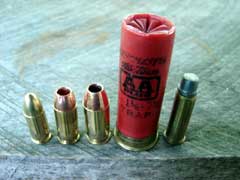
This 2 3/4 inch target load has more power than any of these popular defensive handgun cartridges.
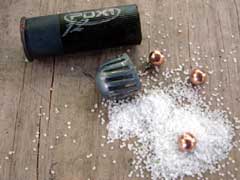
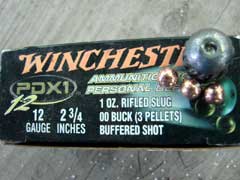
Winchester PDX1 load combines a one-ounce lead slug with three 00 buckshot.
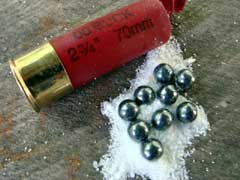
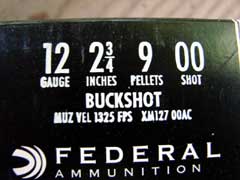
Federal nine-pellet 00 buck load.
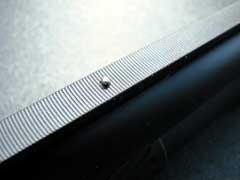
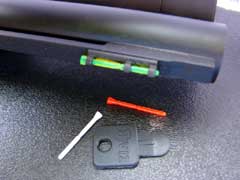
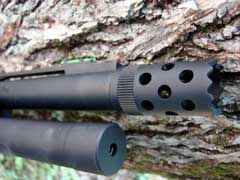
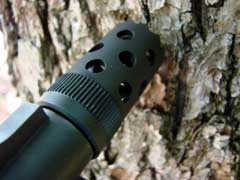
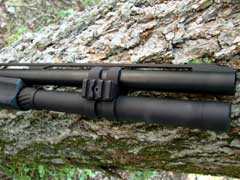
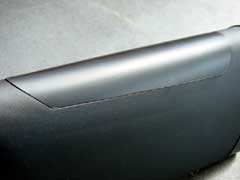
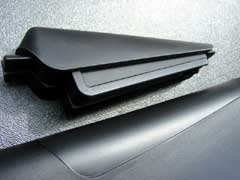
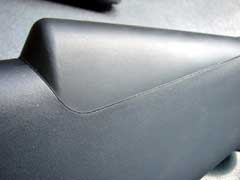
Shotgun comes with two interchangeable soft comb inserts.
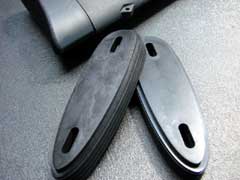
Recoil pad spacers extend the length-of-pull.
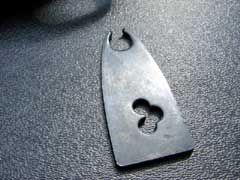
Plate to adjust the pitch and cast of the buttstock.
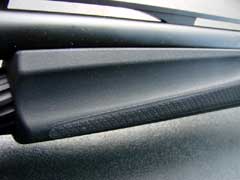
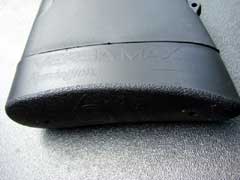
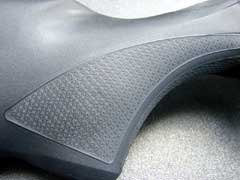
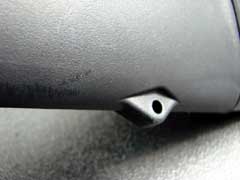
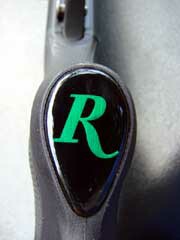
|
![]()